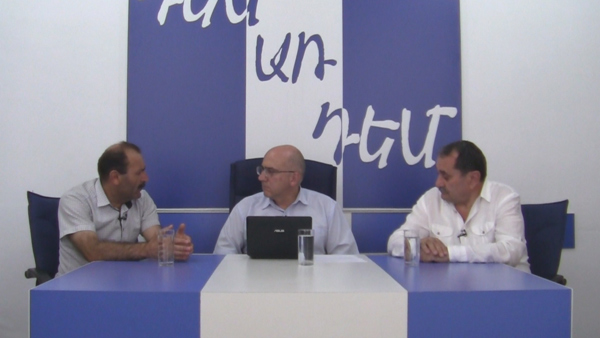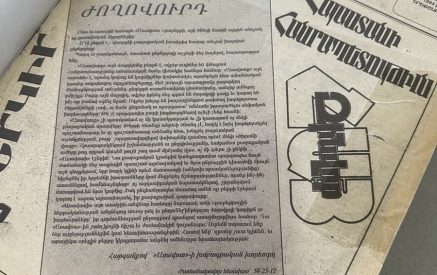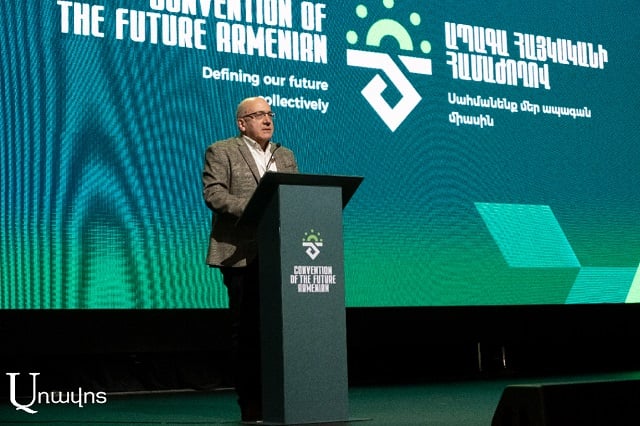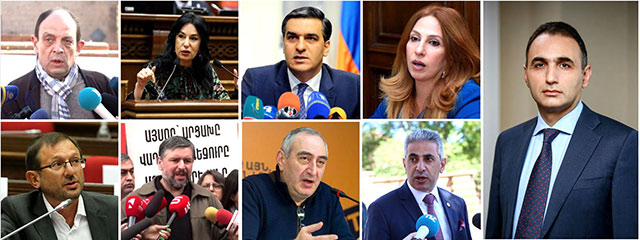The topic of “Aravot” online on the air is discussed between former deputy of SDNS Gurgen Yeghiazaryan and human rights defender Vardan Harutyunyan.
Aram Abrahamyan – Both of you have probably heard or read the content of the recording, when two young people are talking, one of them is a journalist and the “Heritage” board member, and the other is not clear who. Can you claim that it was an attempt of recruitment by NSS?
Gurgen Yeghiazaryan – No, I cannot tell by this recording that it is an attempt of recruitment, we do not know whether he is an employee or not, and I cannot tell anything based on the assumptions. Simply, there is one thing, if it comes to the recruitment, in general, I have said my opinion, there is no state that does not conduct recruitment, and I would like to bring a classic example with just one recruitment, let’s say, the country is destroyed, the Soviet Union. Now, in this case, I will tell that recently it became clear that the special services of the United States recruited a BND officer, this is Germany’s foreign intelligence service. In other words, the friendly country conducts recruitment within its friendly country.
Vardan Harutyunyan – Most likely, it was a recruitment, I tend to think so, but, in any event, it requires evidence to be 100 percent. However, the problem is not the recording. Of course, it is true that all intelligence services around the world are engaged in recruitment. It’s another question for what purpose, what functions and why. For example, to be engaged in recruitment in the independent Republic of Armenia in legally operating political parties, recruiting their board members and regular members so that the special services be able to interfere in the political process, it is forbidden, it is prohibited by the law. The task of special services of Armenia is to ensure the national security of Armenia, they need to be engaged in Armenia’s state protection, rather than have an agent in a political party or another public movement. As for having an agent, I want to make a distinction, there are people who are working within the framework of national security, for the state safety, it’s one thing, it’s another thing when we often say, an agent, it refers to traitors that are engaged in writing denunciations. In other words, condemnable in all normal societies, by all normal people.
Read also
A. A. – Do you agree?
G. Ye. – For example, the political party, which started its activities in the country, totally legal, but people, for example, from not so friendly to us country, Turkey, can enter into the party, can’t they? The security over there should have certain positions to overcome such entries. These political parties are not ready for operative works, they do not know what the enemy can do, how it can guide within their party against our country, I need to have operative, certain grounds to be able to resist it. I am telling the classic version, I think that it should be done to put up a barrier in front of the foreign intelligence services.
V. H. – The National Security Service should be engaged in anti-intelligence in transport, on the street, and in the political parties, everywhere, but recruiting party members and when speaking, in general, about this topic, we should not go beyond the Armenian reality. There is no National Security Service in Armenia, it does not serve the state in Armenia, it serves the current ruling party and the current ruling party leader. This structure cannot fully be involved in functions, to exercise them, let’s say, to protect the state security from spies in the political parties or non-political parties. Today, at least we know from our past experience, they are engaged in what tasks the NSS has put forward, and what methods are used to solve them, we have all been victims of it. The discussions in detail:
Prepared by ARAM ABRAHAMYAN
“Face to Face” talk show series are released by the Open Society Foundations- Armenia. The views and analyzes found in this broadcast express the opinions of the participants, and are not approved by the Open Society Foundations-Armenia, or its Board. This broadcast is made available thanks to comprehensive financial support by the Open Society Foundations-Armenia, under the mass media support program, grant No 18624.























































